New Bathroom Sink Drains Slowly? (We Have A Fix)

The right sink can be the perfect addition to tie your bathroom’s design together completely. It’s why so many DIYers have replaced at least one sink in their home improvement careers.
Of course, even the best-looking bathroom sink isn’t worth much if it doesn’t function properly. Unfortunately, that may be just what you’ve been dealing with if your new bathroom sink drains slowly.
Pour ½ cup of baking soda and ½ cup of white vinegar down the drain so that it drains quickly. Unscrew the drain stopper and clean the inside with a towel or rag to remove any obstructions. Inspect the trap to make sure that it isn’t clogged or sloped at an extreme angle.
Do You Need to Hire Sink Installers?
Get free, zero-commitment quotes from pro contractors near you.

What Causes New Bathroom Sinks to Drain Slow?
There are several different reasons why a bathroom sink may start to drain slowly. The most common culprits are listed below.
Inherent Drain Problems
Many homeowners purchase their drains based on look. They want a product that fits in with the rest of their bathroom. However, there are some types of drains that are just not as good at getting water out of your sink.
This issue is most commonly seen in grid-style drains. These feature a bunch of small holes, which effectively cuts the drain size in half. Additionally, grid-style drains maximize the surface tension in each hole. Together, this adds up to a drain that will always drain slower due to its design.
Excessive Slope from the P-trap to the Wall
Some DIYers have also found that this was the cause of their slow drain. When there’s too much of a slope here, it can cause a pocket of air to be trapped in the drainage system. This creates a situation where water has to fight to break that vacuum in order to get down the drain, increasing the time it takes to do so.
Bathroom Sink Clogs
It’s also possible that your sink issues are the result of a clog. This is one of the easier issues to fix. You can do so by just pouring some drain cleaner down your drain most of the time.
If that doesn’t work, you may need to use either a plunger or a drain snake. Each of these will help you clear away the debris that’s stuck in your pipes. This debris is what causes the water to drain out of your sink more slowly.
How to Repair a Sink that Drains Slowly
The way that you repair a sink that drains slowly depends on what’s causing the issue. With that in mind, there are several different strategies you can use to try and fix your sink before you call a plumber. Here’s an overview of each of them.
Try Cleaning the Stopper
Many homeowners fail to consider that their sink’s stopper may actually be the cause of the drainage system’s problems. However, this is very often the reason why a bathroom sink starts draining more slowly.
The stopper sits at the mouth of the drain. It has a metal tail that extends a few inches into the pipe. This tail regularly catches hair, soap, and the other debris that you try to send down your sink. Over time that can build up to cause a drain to operate more slowly.
Fixing this isn’t difficult. You just need to remove the stopper by unscrewing it. Once you have, wipe away the gunk and residue you find with a paper towel. Then, put the stopper back into place and see if that fixes your issue.
Try Melting the Sludge in your Sink
It’s also possible that the interior of your sink’s drainpipe is what’s causing the problem. As you use your sink, this pipe can develop a slimy coating, which reduces the opening available for water to drain through and slows the system.
You can repair this with a homemade fix of baking soda and vinegar. Start by pouring a half cup of baking soda down the drain. Then, immediately after, pour in a half cup of white vinegar.
This should create a fizzing, bubbling reaction that eats away at the slime coating your drainpipe. As this happens, you’ll want to block the drain with a small rag so that the smells created don’t escape into your home.
Wait about 15 minutes and then pour a kettle of hot water down the drain. This will wash away the remnants of slime residue, potentially fixing your slow drainage problem entirely.
Try Lifting out Debris with a Drain-Cleaning Tool
It’s possible that your drain is draining slowly because of hair and other solid debris that are stuck in your pipe. A drain-cleaning tool (also sometimes called a small hair clog tool) may fix this issue.
Using one is easy. You just need to remove the drain stopper and then insert the plastic line down into the drain. Wiggle it around for a little while, lifting it up frequently to remove the debris it catches. Keep doing this until there’s nothing left for you to pull out of your sink.
Check the Trap
It’s also possible that an issue with your sink’s P-trap is what’s causing the issue. This is the U-shaped bend that you should see in the pipe underneath your sink.
The purpose of the P-trap is to maintain a small pool of water so that sewer gas doesn’t back up into your home. However, it’s also the perfect place for items that you inadvertently lose down your sink to accumulate.
You can fix this problem by removing the P-trap and pushing out any blockages you find with a stiff brush or unbent coat hanger. The P-trap is usually held in place by slip nuts, located at the end of each part of the curved pipe. As you operate, be sure that you place a bucket directly underneath the P-trap to catch any dirty water that comes out.
Replace the Drain
If all else fails, then it may just be time to replace your sink’s drain entirely. You may need to do this if you initially purchased a grid-type drain that simply isn’t capable of draining out water from your sink at a fast enough rate.
If you’re going to replace a grid drain, you should probably do so with a traditional one. These typically have better drainage capabilities and will ensure that you don’t run into a similar issue down the road.
Preventing a Bathroom Sink from Draining Slowly
A little preventative maintenance can go a long way towards preventing your drain from draining slowly. There are a few different things you can do to ensure that your drain continues working properly for years to come.
First, make it a point to throw out loose hairs that you find in your sink instead of flushing them down the drain. Doing so will save you from the headache of needing to fish a hair clog out of your drainpipe down the road.
Additionally, it’s a good idea to just make cleaning your sink stopper a normal part of your bathroom-cleaning routine. Since this is one of the main causes of slow-moving drains, keeping it clean could be all you need to prevent this problem from happening to you again in the future.
Finally, you should also get into the habit of regularly flushing out your drain with very hot water. Doing this will help to melt away some of the scum, soap, and sludge that can coat your drainpipe. It’s another easy task you can do to make sure that your sink continues working as it should.
New Kitchen Sink Drains Slowly
If you have a new kitchen sink that’s draining slowly, the causes of that problem are likely very similar to the ones listed above. Of course, you probably wouldn’t have a hair-based clog in your kitchen sink. Instead, that might come from food particles, bones, and wrappers that you may have inadvertently pushed down your sink.
Since the reasons why a new kitchen sink may drain slowly are similar to why a new bathroom sink would do the same, the fixes are also similar. Try the various fixes listed above to see if one of them works for your new kitchen sink.
Do You Need to Hire Sink Installers?
Get free, zero-commitment quotes from pro contractors near you.

Related Questions
What causes bathroom sinks to clog?
If you think that your new bathroom sink is clogged, you may be wondering how that could have happened. The most common cause of sink clogs in the bathroom is hair.Even if you think you’ve been good about clearing away loose hair from your sink, small amounts can add up over time. It’s very likely that this is what’s causing your sink clog.
Why does my bathroom sink drain gurgle?
A gurgling drain indicates that you have an obstruction in your venting system. This gurgling sound is caused by air that’s being forced through the water in your drain trap. If you’ve been having this issue, you should probably call a plumbing professional out to take a look at your system to ensure you don’t have a more serious problem on your hands.

Kellan is a content writer who specializes in everything DIY. When he's not behind the keyboard, he enjoys spending time with his pets, playing music, and geeking out about basketball. He hopes to make your home improvement projects a little bit easier to accomplish.
More by Kellan Jansen



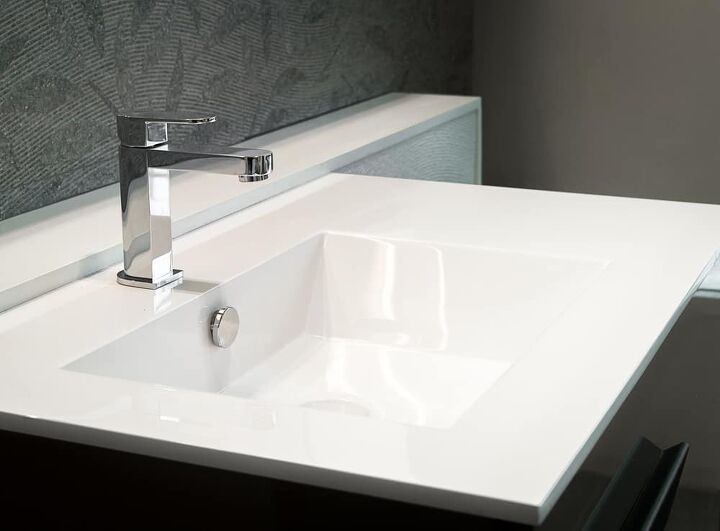







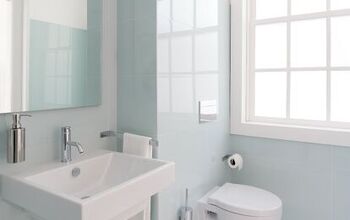
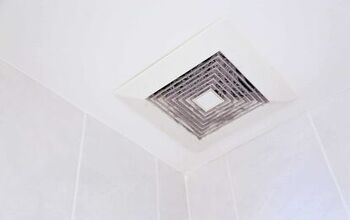
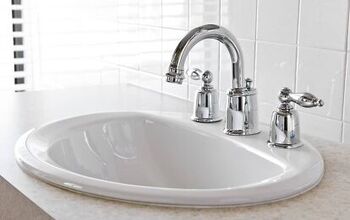
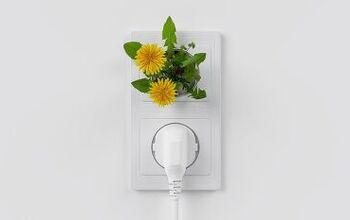


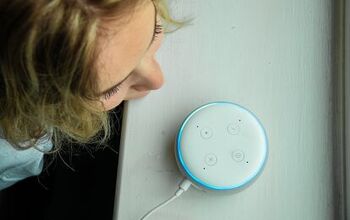



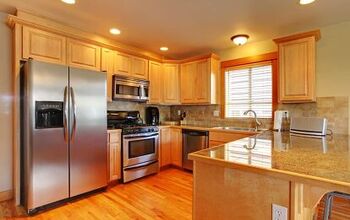

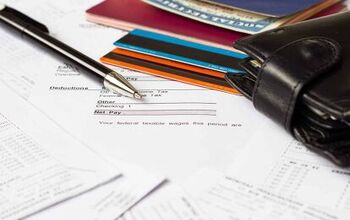
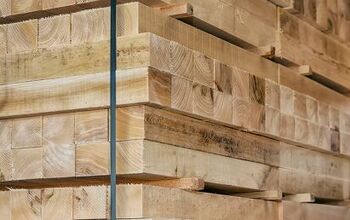
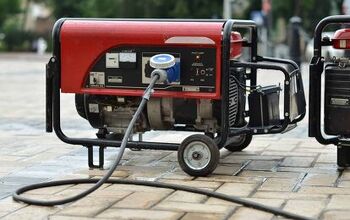

![How To Reset A Whirlpool Cabrio Washer [In 5 Easy Steps!]](https://cdn-fastly.upgradedhome.com/media/2023/07/31/9076531/how-to-reset-a-whirlpool-cabrio-washer-in-5-easy-steps.jpg?size=350x220)